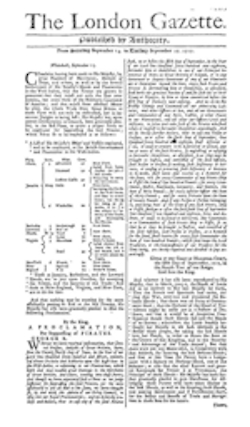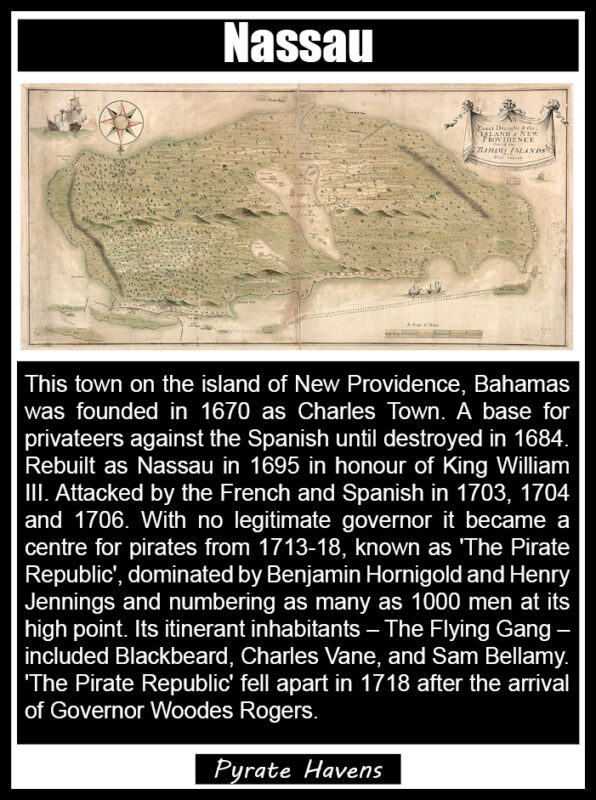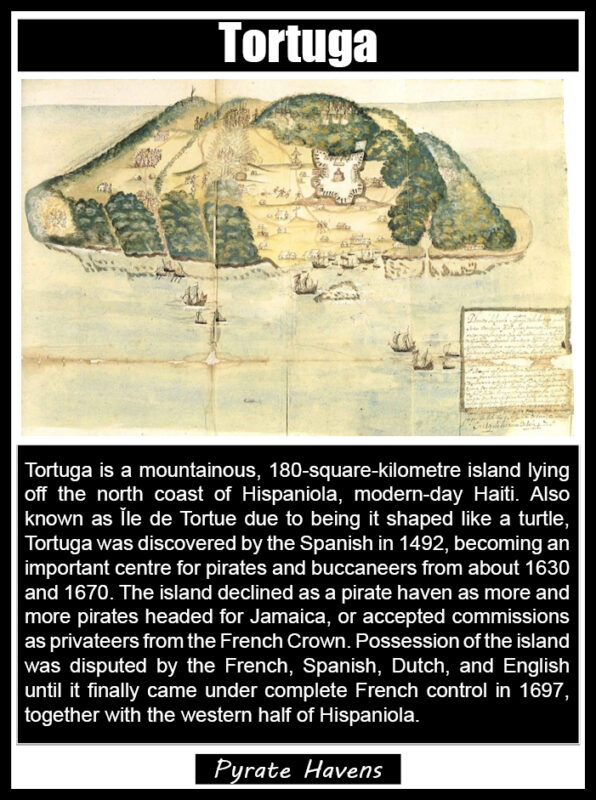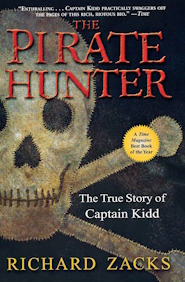The Proclamation for Suppressing of Pirates was also known simply as the Act of Grace, although it was not actually an Act of Parliament. It was a royal proclamation issued by George I of Great Britain on 5th September 1717.
It promised a pardon for any acts of piracy committed before the following 5th January 1718 to those pirates who surrendered themselves to the authorities before a deadline of 5th September 1718. It was subsequently extended to 1st July 1719 by a second proclamation in December 1718. The proclamation also included bounties for the capture of pirates who refused to surrender themselves.
You can read the original text from The London Gazette of 13th September 1717 from The Gazette website, or download it in PDF format by clicking on the image:



 The explorer and privateer Sir Francis Drake was one of the most famous English historical personalities, best known for circumnavigating of the world and playing an important role in defeating the Spanish Armada. To the Spanish he was an infamous pirate known as El Draque (The Dragon in old Spanish), but to the English he was a national hero. He was born in about 1540 in Tavistock near Plymouth, Devon, but grew up in Kent. He was the oldest of twelve boys and his father, Edmund Drake, was a preacher. At the age of twelve Drake became an apprentice to the master of a small freight vessel, which he later inherited. Not satisfied with the life of a coastal trader, he sold the vessel and returned to Plymouth, where he had contacts – John and William Hawkins, who were possibly his cousins. He sought employment on their voyages. Drake married Mary Newman in 1569, but not much is known about her.…
The explorer and privateer Sir Francis Drake was one of the most famous English historical personalities, best known for circumnavigating of the world and playing an important role in defeating the Spanish Armada. To the Spanish he was an infamous pirate known as El Draque (The Dragon in old Spanish), but to the English he was a national hero. He was born in about 1540 in Tavistock near Plymouth, Devon, but grew up in Kent. He was the oldest of twelve boys and his father, Edmund Drake, was a preacher. At the age of twelve Drake became an apprentice to the master of a small freight vessel, which he later inherited. Not satisfied with the life of a coastal trader, he sold the vessel and returned to Plymouth, where he had contacts – John and William Hawkins, who were possibly his cousins. He sought employment on their voyages. Drake married Mary Newman in 1569, but not much is known about her.…
 This harrowing tale traces Kidd’s voyages in the 1690s from his home near Wall Street to Whitehall Palace in London, from the ports of the Caribbean to a secret pirate paradise off Madagascar. Author Richard Zacks, during his research, also unearthed the story of a long forgotten rogue named Robert Culliford, who dogged Kidd and led Kidd’s crew to mutiny not once but twice. The lives of Kidd and Culliford play out like an unscripted duel: one man would hang in the harbor, the other would walk away with the treasure. Filled with superb writing and impeccable research,
This harrowing tale traces Kidd’s voyages in the 1690s from his home near Wall Street to Whitehall Palace in London, from the ports of the Caribbean to a secret pirate paradise off Madagascar. Author Richard Zacks, during his research, also unearthed the story of a long forgotten rogue named Robert Culliford, who dogged Kidd and led Kidd’s crew to mutiny not once but twice. The lives of Kidd and Culliford play out like an unscripted duel: one man would hang in the harbor, the other would walk away with the treasure. Filled with superb writing and impeccable research,